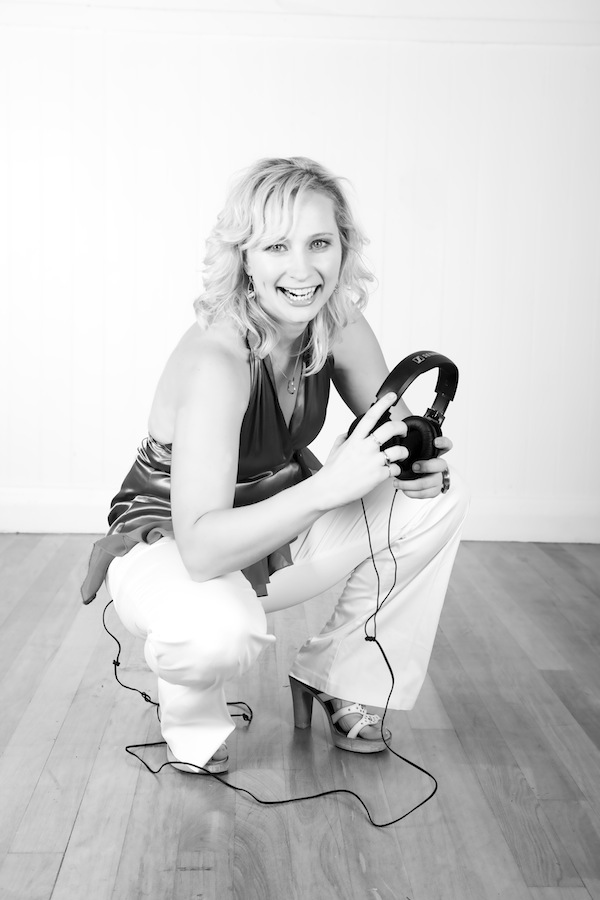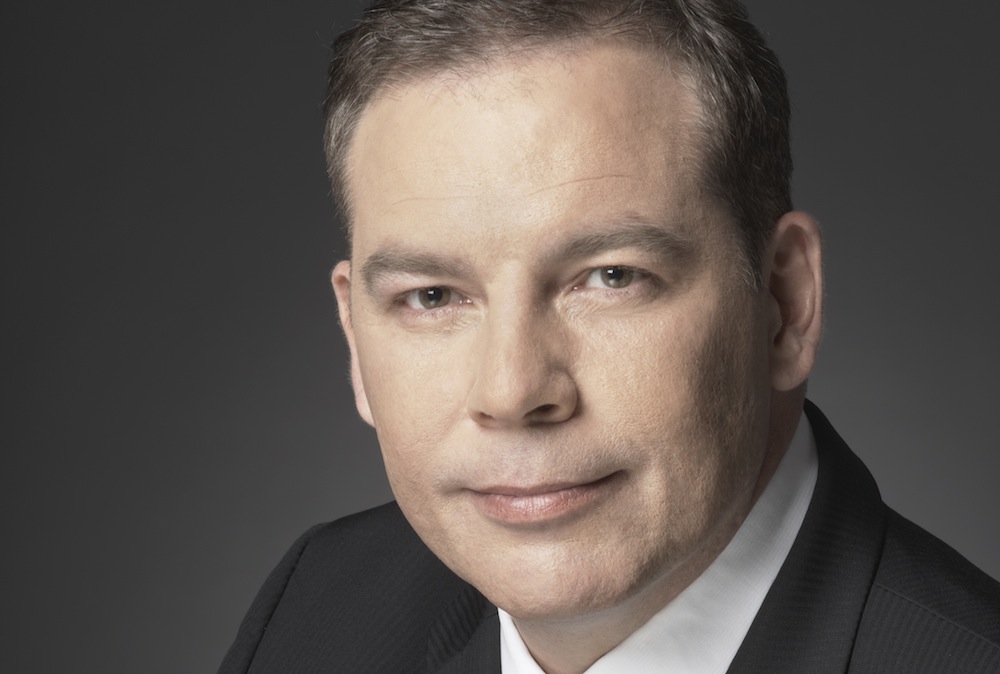The Brutal Truth – Part 9

What the Fuck is 7-Second Delay?!?
(And other very handy tips for young players – including insights from Brad March on the inner workings of Martin/Molloy, Denton/Keller and other great on-air teams)
“If only I had a seven second delay surgically implanted in my brain.
I think I would have been far more successful”.
Akmal Saleh
“It's harder to be funny than it is to be fun”
Chrissie Swan
“Sometimes a comedians brand is significantly stronger than their actual content”
Brad March
Frank insights from the most stellar line-up of on-air talent ever assembled in one place
without mediation or the need to negotiate the release of hostages:
Tony Martin Wendy Harmer  Marty Sheargold
Marty Sheargold  Tom Gleeson
Tom Gleeson  Mick Molloy
Mick Molloy
Tom Ballard  Amanda Keller
Amanda Keller  Rosso
Rosso  Mikey Robins
Mikey Robins  Matt Tilley
Matt Tilley  Chrissie Swan
Chrissie Swan
Lehmo  Akmal Saleh
Akmal Saleh  Tim Smith
Tim Smith  Jo Stanley
Jo Stanley  James O'Loghlin
James O'Loghlin  Craig Annis
Craig Annis
Dave O’Neil  Tim Blackwell
Tim Blackwell  Robin Bailey
Robin Bailey  Simon Kennedy
Simon Kennedy  Stav Davidson
Stav Davidson
Dave Thornton  Julian Schiller
Julian Schiller  Lisa Fernandez
Lisa Fernandez  Jamie Row
Jamie Row  Ciel
Ciel  Joel Creasey
Joel Creasey
Tommy Little  Natalie Locke
Natalie Locke  Steve Philp
Steve Philp  Paul Hogan
Paul Hogan  Adam Richard
Adam Richard
This is the final article in The Brutal Truth series comparing working in stand-up comedy with working in radio. Here we cover the differences in censorship, formatics, anchors, fun versus funny, workload and stamina, dress codes, and talent development. We’ll start with some basics on what you can and can’t get away with saying on the radio…
Innuendo is fine, so long as you can get it out again*.
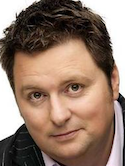 Dave O’Neil Dave O’Neil |
Most stand-ups have to bear in mind that radio is more PG than R rated, so there is some adjusting there. |
.jpg) Tom Ballard Tom Ballard |
(There are) practical realities of broadcasting on a network with rules and regulations as opposed to live performance. I can (and do) say pretty much whatever I want on stage, whereas on air I have a responsibility to uphold the ABC Editorial Policies, I'm appealing to a much broader demographic than an audience in a comedy club and the context is markedly different. |
* Without going to Accident & Emergency and mumbling some excuse about how
you only just bought it and hadn’t fully appreciated the sheer power of a Dyson.
On the bright side, imagine what will happen when you try it out on the carpet…
Double-entendres, if they’re even moderately clever, can be fine – so long as they are double-entendres. On radio, single-entendres – where you come right out and say the word that you actually mean, often one starting with a consonant from the f-major scale – are to be avoided. On radio, you’re not performing to a Rodney Rude audience…
.jpg) Ciel |
In stand up, when in doubt you can always drop the F bomb – not so much on-air! |
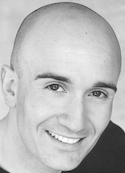 Simon Kennedy Simon Kennedy |
With stage work you've got the ability to push the envelope, test the boundaries of taste without the fear that the club will lose its license or get a fine – and there's no requirement to mention a sponsor after you smash out a quality gag. |
.jpg) Tom Ballard |
Taste is a good example. I'm happy to go into gruesome detail about my sex life on stage, but not so much on air when people are eating their porridge. |
Radio audiences, particularly in breakfast, want respect. Which means they don’t want you to embarrass them in front of people who may be with them while they’re listening (like their parents, grandparents, or a slightly pervy uncle). And parents certainly don’t ever want to have to explain anything to the kids – any “codewords” you use should fly so far over the heads of any kids who are listening that they don’t even notice.
|
Scott Muller |
Merrick & Rosso used “codewords” exceptionally well. So did the brilliant Johnny Vaughan (who I worked with at Capital Radio in London). They didn’t just use regular “codewords” to disguise what they were talking about; they used “codewords” that sounded funny in their own right. So kids could laugh, too, and not wonder why mummy and daddy were getting a chuckle out of the phrase “Mum’s Tickle Me Elmo”. If the kids think it’s funny and they see mum and dad thinking it’s funny, to them it means we’re all laughing at the same thing for the same reason. |
And when it comes to bleeping out words in pre-recorded material, less is best. In breakfast, bleeping words that start with consonants from the f-major scale can be almost as bad as coming right out and saying them: the listener may still have to explain to their kids why there was a bleep sound. Do this too often in breakfast and, over time, people will listen less and less. You’ll be directly contributing to 2CH and Smooth FM battling it out for #1 … in breakfast.
 Dave O’Neil Dave O’Neil |
(In) stand-up there is no real censor but with radio you have to deal with listeners, management, etc! |
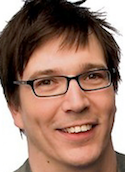 Stav Davidson Stav Davidson |
My stand up became filthy for about 3 months after I started in radio. I felt so censored in what I could say on air that on stage I went the other way. It took me a while to find a happy medium. |
.jpg) Tom Ballard Tom Ballard |
The kind of language and ideas you can play with change. In front of a live audience you can push things a lot further and rescue things if they don’t work and assure everyone you're joking, whereas if you're just a faceless wanker yabbering on in the background at 7:30 in the morning, people can mis-hear things or misconstrue where you're coming from. |
In radio there is a wonderful device called “7 second delay”. When it’s switched on (note: this is a very important step!), everything you say goes through some technical witchcraft and comes out of the speakers 7 seconds later. This means, for example, that if your Program Director is mad enough to take a leaf out of the history books and re-run a promotion from the 1970s called Cunning Stunts* – and you say it the wrong way around on-air – you can hit the “dump” button on the 7 second delay, and everything you said for the last 7 seconds disappears. Including your stunning cock up.
* In the 1970s in Australian media & entertainment industries, you could get away with almost anything. Far less so nowadays.
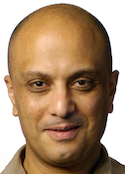 Akmal Saleh Akmal Saleh |
With stand-up there is no “7 second delay”. If only I had a “7 second delay” surgically implanted in my brain. I think I would have been far more successful. |
But enough of words that rhyme with mallards and football kicks; let’s turn to formatics and housekeeping …
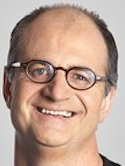 James O'loghlin James O'loghlin |
Radio requires you to be able to do many more things than just be funny. You have to do the housekeeping – time calls, traffic, what’s coming up. |
%2072px.jpg) Brad March |
The difference between stand up and radio is that with stand up you just keep talking, free form for 30 minutes or more. Radio needs to be formatted to include ads, news, music and other segments. |
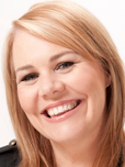 Natalie Locke Natalie Locke |
So much is out of your control, particularly when it comes to contesting and promotions. And then there's the Program Director, who is endlessly banging on about hooking constantly. I can't ever recall hooking an upcoming gag in a comedy routine. The same goes for time and temp calls. On the upside, if something you're doing on air is dying in the ass, at least you can throw to a Rihanna song and everyone can move on. You don't get that luxury on stage. |
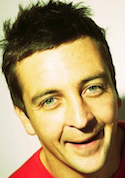 Steve Philp Steve Philp |
On the radio you get the benefit of tagging punch lines with a song. (It would) be great if you could do that on stage. (On the other hand), on stage I don't have to listen to the Pussycat Dolls – which is great! |
 Akmal Saleh Akmal Saleh |
Unlike radio, when performing stand-up you are never interrupted by Kanye West, Prince or Mad Barry, from Mad Barry's bathroom renovations. |
%2072px.jpg) Brad March |
Often stand-up comedians need an anchor to handle all the radio-specific requirements, like going to songs, ads, hooks, teases, re-sets – and to 'steer' the show. However, that's not always the case – there are a few examples of comedians like Tony Martin or Natalie Locke who anchor a show exceptionally well. Not every comedian needs to work alongside a “Radio DJ / Anchor”. |
 Natalie Locke Natalie Locke |
In our show, I also hold down the anchor role, and am essentially the voice of reason (this is only a relative term). |
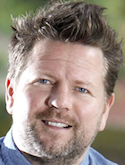 Rosso Rosso |
The comedians who do well on radio are the ones that appreciate the art and craft of radio and embrace the medium and don't fight it. |
%2072px.jpg) Brad March |
Work hard at the craft of radio and be patient. Sometimes it takes many combinations of talent to get it right and it can also take a variety of time slots and a range of markets to find the right place for you. Marty Sheargold is a great example. From Adelaide breakfast to Triple M's Shebang, to Nova Brisbane – and now he's enjoying great success (after clocking up a lot of flying hours) on the Nova Network Drive show as Meshel, Tim and Marty. |
|
Scott Muller |
Over the years the role of comedians in radio has changed. Once upon a time – for a very long time – comedians and on-air talent were hired by radio stations to be “funny” … |
.jpg) Ciel |
Back in the day being funny was a great entry into broadcasting; I grew up on fabulous people like Doug Mulray, Andrew Denton, Wendy Harmer, Peter Moon, Helen Razor, and Mikey Robins – good radio was funny – especially in breakfast. |
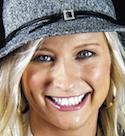 Sarah Levett Sarah Levett |
Nowadays, you hear more and more that programmers want “fun”, not just “funny”. |
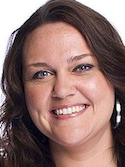 Chrissie Swan Chrissie Swan |
I've … had dozens (of comedians) on my various TV and radio shows as guests, and what I've gathered is that it's harder to be funny than it is to be fun. |
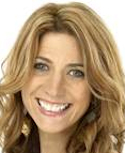 Robin Bailey Robin Bailey |
From my experience most recently with Jamie Dunn and Terry Hansen you need to give the guys the chance to deliver their lines and the material that gets them there. Both of these guys are awesome at quick funny one lines that instantly make you laugh. They can lighten any moment and that is so important in a content heavy breakfast show. So people leave you feeling good … I've learnt that a comedian is forgiven almost anything if it's funny. |
All of this raises an important point. Each generation of comedians and on-air talent influences the next generation. And the next generation is usually hot on their heels.
|
Scott Muller |
When Mulray was the king, I imagine there were a lot demos going around of “Mulray-alikes”. The reason I’m confident in that guess is that when Martin/Molloy were hot, suddenly half the demos you’d receive sounded like two guys who wanted to be Martin/Molloy. A few years later the same thing happened when Merrick & Rosso were hot. Then Hamish & Andy. That’s normal – it happens in every creative field – radio, television, movies, writers, music, architecture. And on and on, all over the world… In London I used to receive 300-400 demos a month, unsolicited – just about all of them sounded like someone else they clearly wanted to be, usually one of the same three superstars of the moment. That’s not necessarily a bad thing, certainly not for the industry – every now and then there’s someone unique, or someone using their influences to create something new and appealing in its own right. But it’s not a great thing for all the ones who don’t have the support to work out what makes them unique and appealing – often that takes outside help, whether from a network talent development show, or a mentor/manager, etc. |
Fortunately for Joel Creasey, he doesn’t sound too much like his biggest radio influences…
|
Joel Creasey |
I know people who work in radio and it's all they talk about. They live and breathe radio and all they talk about is current shows, old shows, speculate on what shows that will form. To be honest the only show I can remember from when I was younger is The Big Arvo with Judith Lucy and Peter Helliar. I would always agree to go with my mum to pick up my little sister from dance lessons so I could listen to this show in the car. I didn't really know who Judith Lucy was at the time but I just remember falling in love. This probably should've been a pretty huge red flag for mum. |
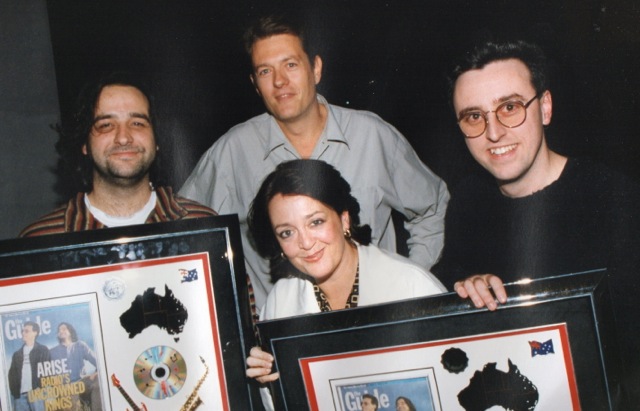
Left to right: Mick Molloy, Brad March, Wendy Harmer, Tony Martin
One of co-authors of The Brutal Truth series, Brad March, has developed more superstar on-air talent that anyone else in Australian radio. The Sydney Morning Herald wrote of Brad that “March developed the radio potential of such comic talent as Andrew Denton, Amanda Keller, Peter Moon, Tony Martin, Mick Molloy … Jamie Dunn and, of course, (Wendy) Harmer”.
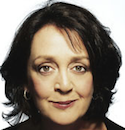 Wendy Harmer Wendy Harmer |
(From a newspaper article about Brad) ”He was a real mentor to me and is still highly regarded by the comics who worked with him … I’d been a comedian rabbiting-on on stage for 12 years. Brad was trying to beat me into a one-minute-30-seconds segment … He had to bend me into shape. I’d say ‘What is this research? Who are listener advisory boards?’ But he’s a formidable foe with a strong feminine side, which makes him tougher. I’d lie in bed at night and work out strategies to beat him. Then I’d walk into his office the next day and he’d have a little notice on the wall taken from one of those pop psychology books, which said ’10 ways to deal with difficult people’.” |
Here, Brad shares the key points about developing some of those shows – and the key take away for senior executives and Program Directors is to take different approaches for different talent.
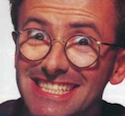
Andrew Denton said that the hiring of Tony Martin and Mick Molloy was probably the best indicator of Brad’s insight into what works: “Nobody else would take them on … Nobody else could see it”. An important point to remember is that, at the time, hiring Martin/Molloy was considered a radical departure from the norm.
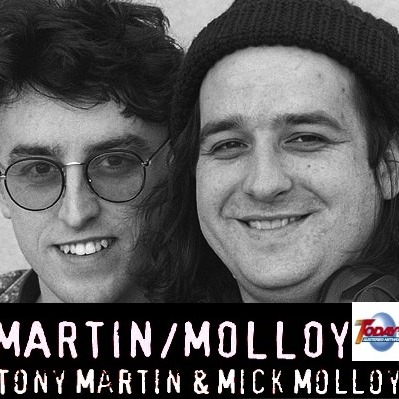
%2072px.jpg) Brad March |
Working with Tony and Mick, the key issue was surrounding them with the right people. They had both done radio before, and I had worked with them before at Triple M Melbourne (when they were part of the D-Generation). They spend a huge amount of time preparing, usually starting at 11am for a 4pm start. |
|
Scott Muller |
And that 11am start time was just their “in the office” prep. Working with Tony and Mick as their production guy (and APD of Fox FM), I know they also did a huge amount of work after the show, and then the next morning before they came in at 11am – plus on weekends. Tony once told me that, in addition to their 10 hours a week on-air, they did 70 hours a week in prep and writing, etc. |
%2072px.jpg) Brad March |
With air-checks, we would listen back to the show – but in their case they mainly critiqued their own content. That’s not the case with many shows, but with them, they had such a crystal clear idea of what they were trying to achieve with their content, that the focus for us was in making sure they had all the right support, that any obstacles that got in their way were cleared, and that the environment was conducive to them achieving what they wanted to achieve (in terms of the extremely high quality of their material). Also working with them on getting sales promotions incorporated creatively into the show was important as, being the first really successful national drive show, it had strong appeal for clients. |
While there were some similarities with the development of some other shows, there were also many differences…
%2072px.jpg) Brad March |
Andrew Denton and Amanda Keller on Triple M Sydney initially needed direction mainly on structure for their show, and also on what range of content worked best for the audience. … Andrew had experience from doing Doug Mulray’s Triple M show, so knew the ropes. Morning meetings happened every day … In fact, in all the key shows / talent I’ve worked with, doing air-checks – listening back to part of the show with the talent – was an important part of the process. |
|
Scott Muller |
Some times the talent are best at critiquing their own content, as was the case with Martin/Molloy. With others there are elements – such as those Brad mentioned, to do with structure and what range of content will work best for the audience – where you’re more involved. And there are others where you need to move your focus to helping develop and expand their creative process, as I found working with Johnny Vaughan at Capital London, and many others before and since.
The point is: the role of management (or Program/Content Director, or Executive Producer) changes depending on the talent – one size does not fit all. And, certainly, a “hands-off” approach rarely works – though part of the challenge with a more “hands-on” approach is that you have to be “hands-on” in very different ways with different on-air talent – and you have to figure out the best approach to support them. Again, one size does not fit all… |
%2072px.jpg) Brad March |
Yes, it’s important to remember that it’s not a contest between the Program Director and the talent. The advantage the PD has is that they are not 'doing' the show so – they are able to 'hear' the show like a listener. Then they are able to pass on feedback to the talent. It’s similar to a coach watching a football team from the grandstand and then passing on direction to the players. |
|
Scott Muller |
And an important part of making it work that way is to spend time making sure the Program Director and Executive Producer and the talent are all clearly working together on the same show, with the same intentions. Ideally, all issues should be out in the open, with everyone having the same understanding of the show, who it’s for, what it’s about, what the goals are, what the roles are (on-air and off-air), etc. While, to some extent, that can evolve over time, it’s important to spend all the time necessary to create a strong foundation right from the start. I think that approach plays a part in what makes Dave Cameron the best Program Director in Australia right now. |
%2072px.jpg) Brad March |
Yes – for a stand-up comedian to successfully translate to radio, he/she needs a compatible Executive Producer or Program Director. One that has the ability and, in particular, the experience to teach, coach and direct – which requires a very different skill-set to Program Directors who may be strong at music, or promotions, or marketing. Directing talent for radio is a specialised skill – and it usually requires experience, and a fair degree of talent in its own right. |
We’ll finish this series of The Brutal Truth with our expert panels’ words on the differences in hours, the workload, the stamina required of radio, and dress standards…
 Dave O’Neil Dave O’Neil |
(Something) that some stand-ups don't cope with is the hours! Particularly breakfast radio. I got into stand-up to avoid 9-5 work and ended up working 5-9 am! |
 James O'loghlin James O'loghlin |
You have to do interviews, and you have to be able to talk for ages each day in an entertaining way – you usually need to do a lot more hours work in a week. |
.jpg) Ciel |
Which is kind of strange because as stand up comedians we are creatures of the night and on breakfast radio we suddenly have to get up at an hour we'd usually be falling into bed! When I first got my radio gig my mates laughed and asked me if my plan was to just to stay up? And for the first 2 weeks I actually did! |
 Sarah Levett Sarah Levett |
In radio you need the team’s energy – especially with the breaky shift – to get up and say “I LOVE waking at 3.45am”. When I started doing breaky radio, I made a point of never saying “I’m tired’ or complaining about things. I always felt that if I said I was tired, the more tired I would get. |
.jpg) Ciel |
To me the best way to survive getting up early is to laugh – otherwise you'll cry!! |
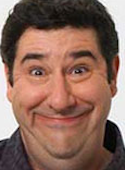 Tim Smith |
Radio offers free tea and coffee while on the job. Stand-up is similar but they throw in a free headache for the next morning. |
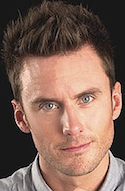 Dave Thornton Dave Thornton |
(A big difference is), quite obviously, the hours. Breakfast radio especially has a different vibe, both for you and the audience. Asking listeners 'who's drunk?' at 7 in the morn tends to fall a little flat, or worse still you get a response and then have to organise an intervention. |
 Tim Smith |
Radio Personalities are self-obsessed ego maniacs who drink too much. Stand-ups are self-obsessed ego maniacs who drink too much. |
 Steve Philp Steve Philp |
Stand-up is great because you can drink beer whilst at work. Bit tricky doing that during breakfast radio. |
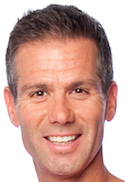 Matt Tilley |
The pressure on stand-up also seems greater because the audience have sat down specifically to be entertained. I’m always acutely aware that for many people listening to the radio you’re secondary to what they’re actually doing. There’s a little bit of safety in being incidental. |
 Dave Thornton Dave Thornton |
A full time radio gig is every week day so you have to pace yourself for the long haul. If something doesn't work, fix it tomorrow. Work hard but understand you'll get another crack at it – unless your show get's axed, which is pretty rare in FM Radio. |
 Matt Tilley |
There’s a stamina to radio which often destroys a good stand up. They have such high standards that the grind of coming up with so much means “below par” material eats away at their souls – as do the hours of breakfast radio. You can’t drink and bitch until 4am when you have to be at work in an hour! |
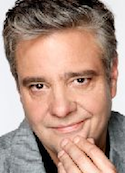 Mikey Robins Mikey Robins |
Sounds really dumb and really obvious but when you do radio its quick fire, quick fire. When you do stand-up you have to take your time, because they are going to laugh. Which was weird when I started stand-up 2 years ago – STOP talking, they are laughing. |
|
|
I think some of the best radio I ever did was when I was a part of the launch of Nova 106.9. I was living back in my home town of Brisbane and the comedy club that I performed my first ever gig in when I was 17, offered me weekly MCing gigs. Eventually it got to the point where I was their resident MC, up to four nights a week.
MCing that room, for me, gave me a face to our listeners, which was invaluable. |
 Sarah Levett Sarah Levett |
Another major difference between stand-up and radio is the lack of visual. The voice becomes even more key on radio. It is the radio announcer’s most important tool. And, depending on how you work (you may sit or stand while on-air), it plays a part in your energy levels, too. Sitting collapses the diaphragm and obviously impacts the voice and energy levels.
Stand-up comedy allows you to use your voice, and your expressions and body language to get your jokes across. You can really milk a joke using the physical aspects – one of the main ingredients to a successful joke is the “act out” part of the gag. You can therefore have a range of personality types when doing stand-up – dead pan, angry, squeaky, aggressive, crass – which you generally can’t access on radio – at least not through visual means. |
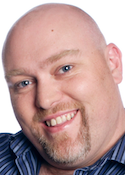 Adam Richard Adam Richard |
Adam Richard: You have to forget every single thing you know about performing when you transition from stand-up into radio. Even on a purely technical level. You use so much more vocal range on stage, but in the studio, you need to be able to do the same thing using a much smaller, quieter range. |
And finally, as promised, some wise words on keeping up appearances …
 Akmal Saleh Akmal Saleh |
The advantage of radio is that your audience is not concerned with how you are dressed. For example, on radio pants are optional, where stand-up audiences are a bit more demanding (Blacktown Workers club is an exception). |
|
Joel Creasey |
Well I would never wear track pants and uggs boots to do stand-up. |
.jpg) Tom Ballard Tom Ballard |
Wear whatever you like when doing radio, but one should never wear shorts when doing stand-up. It’s downright blasphemy. |
Once again, we thank all of the comedians and on-air talent who have so generously contributed to The Brutal Truth series on comparing working in stand-up comedy and radio. We are humbled by, and grateful for, the overwhelming response and support for the series of articles.
Sincerely,
Brad, Sarah, and Scott
|
|
Brad March is a former CEO of the Austereo Network and is Managing Director of Marchmedia. |   |
| Sarah Levett is a successful standup comedian, writer, MC, co-host of the New FM Breakfast Show. | ||
| Scott Muller is Director of MBOS Consulting Group, a media management and consulting firm. Click here to contact him. |  |
Who They Are (our stellar panel of experts):
Craig Annis – comedian and host of Star 104.5 breakfast show on Central Coast
 Robin Bailey – breakfast host of 97.3fm Brisbane
Robin Bailey – breakfast host of 97.3fm Brisbane
 Tom Ballard – comedian and host of triple j breakfast
Tom Ballard – comedian and host of triple j breakfast
 Tim Blackwell – host of Nova’s national drive show
Tim Blackwell – host of Nova’s national drive show
 Ciel – comedian and on-air personality, previously at Sea FM Central Coast
Ciel – comedian and on-air personality, previously at Sea FM Central Coast
 Joel Creasey – comedian and regularly appears on 92.9 Perth + other stations across Australia
Joel Creasey – comedian and regularly appears on 92.9 Perth + other stations across Australia
 Stav Davidson – comedian and host of B105 breakfast
Stav Davidson – comedian and host of B105 breakfast
 Lisa Fernandez – host of 92.9 breakfast in Perth
Lisa Fernandez – host of 92.9 breakfast in Perth
 Tom Gleeson – comedian and previous host of Mix 101.1 breakfast
Tom Gleeson – comedian and previous host of Mix 101.1 breakfast
 Wendy Harmer – comedian, ex-host of 2Day FM Morning Crew, now Editor in Chief of The Hoopla
Wendy Harmer – comedian, ex-host of 2Day FM Morning Crew, now Editor in Chief of The Hoopla
 Paul Hogan – comedian and host of 92.9 breakfast in Perth
Paul Hogan – comedian and host of 92.9 breakfast in Perth
 Amanda Keller – hosted Triple M Syd bfst with Andrew Denton, now on WSFM with Jonesy
Amanda Keller – hosted Triple M Syd bfst with Andrew Denton, now on WSFM with Jonesy
 Simon Kennedy – comedian and former host of weekend breakfast on Nova 96.9
Simon Kennedy – comedian and former host of weekend breakfast on Nova 96.9
 Lehmo – comedian, TV personality and host of breakfast on Gold FM in Melbourne
Lehmo – comedian, TV personality and host of breakfast on Gold FM in Melbourne
 Tommy Little – comedian and weekend breakfast host on Nova 100
Tommy Little – comedian and weekend breakfast host on Nova 100
 Natalie Locke – host of Nova 937 breakfast in Perth and former stand-up comedian
Natalie Locke – host of Nova 937 breakfast in Perth and former stand-up comedian
 Tony Martin – comedian, famous for Martin / Molloy, Get This, and the D-Generation. Currently a writer/director of ABC's Upper Middle Bogan
Tony Martin – comedian, famous for Martin / Molloy, Get This, and the D-Generation. Currently a writer/director of ABC's Upper Middle Bogan
 Mick Molloy – comedian, famous for Martin / Molloy, the D-Generation, and currently hosts breakfast on Triple M Melbourne
Mick Molloy – comedian, famous for Martin / Molloy, the D-Generation, and currently hosts breakfast on Triple M Melbourne
 James O’Loghlin – comedian, TV personality and ABC radio host
James O’Loghlin – comedian, TV personality and ABC radio host
 Dave O’Neil – comedian and founding member of the Nova 100 breakfast show
Dave O’Neil – comedian and founding member of the Nova 100 breakfast show
 Steve Philp – comedian and former host of weekend breakfast on Nova 96.9
Steve Philp – comedian and former host of weekend breakfast on Nova 96.9
 Adam Richard – comedian who has worked at triple j and for the Today network
Adam Richard – comedian who has worked at triple j and for the Today network
 Mikey Robins – comedian who has worked on breakfast at triple j and Triple M Sydney
Mikey Robins – comedian who has worked on breakfast at triple j and Triple M Sydney
 Tim 'Rosso' Ross – comedian and host of Mix drive in Sydney and Melbourne
Tim 'Rosso' Ross – comedian and host of Mix drive in Sydney and Melbourne
 Jamie Row – comedian and host of Mix 101.1 breakfast with Chrissie & Jane
Jamie Row – comedian and host of Mix 101.1 breakfast with Chrissie & Jane
 Akmal Saleh – comedian and former host of Nova national drive show
Akmal Saleh – comedian and former host of Nova national drive show
 Julian Schiller – comedy writer and host of Merrick & The Highway Patrol
Julian Schiller – comedy writer and host of Merrick & The Highway Patrol
 Marty Sheargold – comedian and host of Nova’s national drive show
Marty Sheargold – comedian and host of Nova’s national drive show
 Tim Smith – worked on The Richard Stubbs Breakfast Show, Timbo & Bedder’s, and on Mix 101.1
Tim Smith – worked on The Richard Stubbs Breakfast Show, Timbo & Bedder’s, and on Mix 101.1
 Jo Stanley – host of breakfast on Fox FM Melbourne
Jo Stanley – host of breakfast on Fox FM Melbourne
 Chrissie Swan – host of Mix 101.1 breakfast in Melbourne
Chrissie Swan – host of Mix 101.1 breakfast in Melbourne
 Dave Thornton – comedian, host of Mamamia Today and current weekend show with Sophie Monk
Dave Thornton – comedian, host of Mamamia Today and current weekend show with Sophie Monk
 Matt Tilley – host of breakfast on Fox FM Melbourne
Matt Tilley – host of breakfast on Fox FM Melbourne
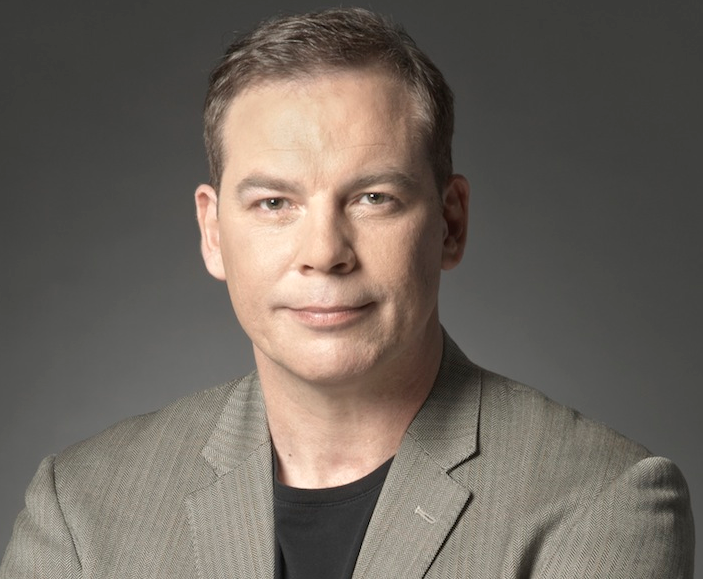
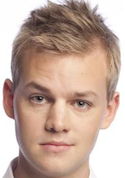
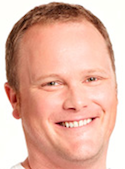 Jamie Row
Jamie Row